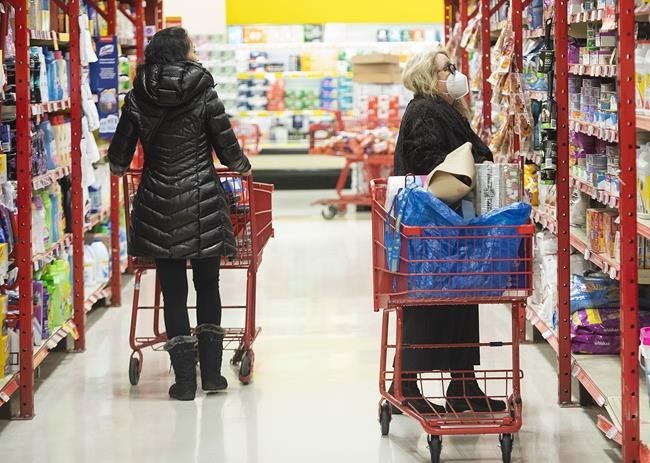OTTAWA ŌĆö Members of Parliament have summoned the heads of sa╣·╝╩┤½├Į's largest grocery store chains to answer for rising food prices.┬Ā
On Monday, a House of Commons committee studying food price inflation called on the CEOs and presidents of Loblaw Companies, Metro and Empire Company Limited ŌĆö which operates chains including Sobeys, Safeway and FreshCo ŌĆö to attend an upcoming meeting.┬Ā
The hearing has not yet been scheduled.┬Ā
The proposal to hear from the industry leaders came from NDP MP Alistair MacGregor, and it received unanimous support from Liberal, Conservative and Bloc Qu├®b├®cois MPs on the committee.
Executives from all three companies, as well as Save-On-Foods, have testified at past committee meetings focused on the rising cost of food ŌĆö but not their CEOs.
"Those at the heads of these companies, where the buck stops ŌĆ” should at least have to answer questions around why their profits are so high and why their prices are so high," said NDP Leader Jagmeet Singh on Tuesday. "And why are they profiting off the backs of Canadians?"
The committee began the study in October, originally setting aside six meetings to discuss the subject. MPs have now decided to add more meetings and witnesses, aside from the CEOs.┬Ā
The Retail Council of sa╣·╝╩┤½├Į, which advocates for grocers, said it wants the committee to call upon global brands, manufacturers, processors and wholesalers.
"Grocers are food distributors ŌĆö they buy goods from suppliers and then sell them to customers. This means that they are largely dependent on what suppliers ask them to pay for their products," said Michelle Wasylyshen, a spokesperson for the council, in a statement Tuesday.┬Ā
"What Canadians need is for political leaders to start looking at the food price inflation problem in all its complexities and this has not yet happened."
Metro declined to comment, while Loblaw and Empire Company Limited didn't immediately respond to a request for comment.
Prices for food purchased from stores rose nearly 10 per cent in 2022, the fastest pace since 1981, with higher prices in every food category except for canned salmon, according to Statistics sa╣·╝╩┤½├Į.┬Ā
"Canadians are cutting back on their usual grocery lists and stretching their paycheques even further to get less for their families," said MacGregor, who is the NDP's food price inflation critic.
"But all the while, these grocery CEOs are making more money than they ever have before. It just doesnŌĆÖt add up."
Last year, the Liberal government ordered the Competition Bureau to study food prices at grocery chains and whether competition between companies is contributing to higher prices.┬Ā
The bureau has said that many factors may have affected the price of food, including extreme weather, higher input costs, Russia's invasion of Ukraine and supply-chain disruptions. Its study is expected to be released sometime this year.
Pierre St-Laurent, the chief operating officer for Empire Company Limited, told the committee in December that global challenges are increasing the costs of food production.┬Ā
"Unfortunately, present circumstances are such that our suppliers have no choice but to ask retailers for significant price increases if they are to remain profitable," St-Laurent said.┬Ā
This report by The Canadian Press was first published Feb. 14, 2023.
Mickey Djuric, The Canadian Press

